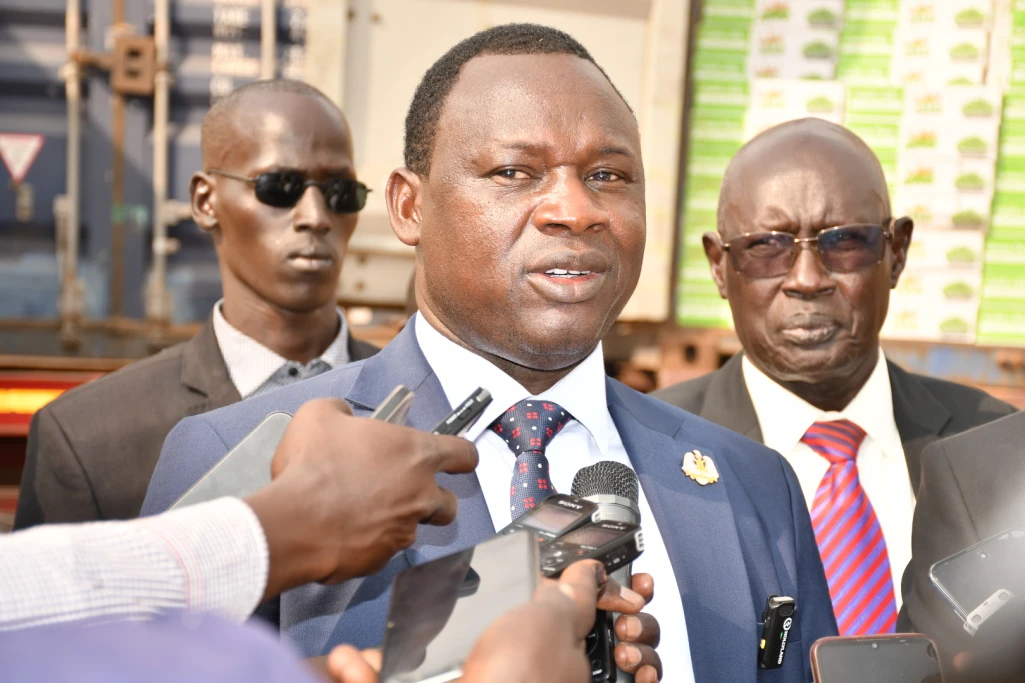
The Ministry of Trade and Industry, in collaboration
with the National Bureau of Standards (NBS) has declared a fierce fight against ‘dumping’ of substandard goods into the South Sudan markets.
NBS on Saturday
destroyed over 5,000 expired food and non-food items it had collected from some markets in Juba.
The substandard and expired goods, which include beverages,
lubricants, soft drinks, food items, and engine oil, were collected during
the campaign carried out by market surveillance unit of quality assurance
department in December 2023.
“When we clear some goods that are imported from ports of entry, we just don’t stop there; we continue to do market surveillance because
once goods are in the country and they are in the stores, shops, or supermarkets,
they may reach expiry date and some unscrupulous businesspeople in one way or
another may decide to continue selling the same products,” said Dr. Kuorwel
Kuai Kuorwel, NBS chairperson.
Besides substandard goods, the bureau found some traders to
have repackaged the expired goods and made them in affordable quantities - a
practice the authorities described as criminal act.
“Those goods that have expired, people decide to repackage
them so that they look affordable […] People decide to give them new date by
changing the already expired date and masked with a new date. This is a real
criminal intent in doing so,” Kuai continued.
NBS has continued to
struggle in fighting the consumption of substandard goods which are being imported
to South Sudan from foreign countries.
Meanwhile, the Minister of Trade and Industry, William Anyuon
Kuol, blames the foreigners for dumping substandard and already expired goods into
South Sudan market to make profits.
“They just want money and they decided to dump most of the
things to the market here in South Sudan. They brought most of the foods that
have already expired,” Anyuon stated.
The traders have in most cases been charged to pay fines whenever they are found selling substandard or expired goods based
on the knowledge of the trader or retailer.
However, to ensure strict protection of consumers, the
minister promised to embark on legal procedures to ensure that those found selling such goods face the law.
“They think people of South Sudan are desperate and they can eat anything and use anything that they bring. We will take these people to court […] We will take this one seriously and we will not leave people just to dump everything,” Anyuon furiously said.
This month, NBS impounded 17 commercial
trucks carrying smuggled goods in Nimule town and Nesitu checkpoints imported
by four Juba-based suppliers from Brazil, India, United Arab Emirates (UAE),
and Vietnam.
Dr. Kuai said the bureau has taken
legal actions against some companies which he could not detail due to legal
process which is already ongoing.
“We have filed a legal action against some of the companies
after our investigation. As we speak, I won’t comment further given the fact
that the matter is now in court,” Kuai disclosed.
Dr. Kuai disclosed that beginning in February onwards, the
National Bureau of Standards will begin to inspect and carryout market surveillance
in all the ten states and three administrative areas to ensure quality of goods
consumed by the South Sudanese.